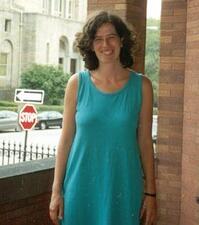Education: Schools
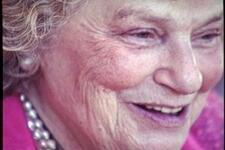
Viola Spolin
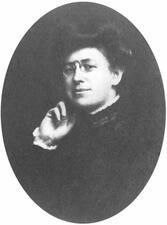
Pauline Perlmutter Steinem
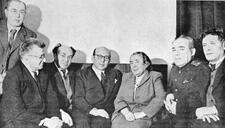
Lina Solomonovna Stern (Shtern)
Lina Shtern, biochemist and physician, was the first woman professor at the University of Geneva and the first woman named to the Soviet Academy of Sciences. Born in Latvia, then part of the Russian Empire, she returned to the Soviet Union out of political idealism. A member of the Jewish Anti-Fascist Committee during World War II, she was a victim of postwar repressions that targeted both scientists and Jews.
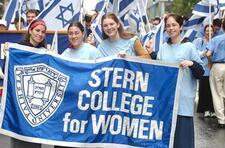
Stern College for Women
Founded in 1954, Stern College for Women of Yeshiva University is the longest-standing college in America for women under Jewish auspices. It has attracted young women from both Orthodox and non-Orthodox Jewish homes interested both in secular university training and high-level Jewish studies.
Bessie Cleveland Stern
Bessie Cleveland Stern is most recognized for her work as statistician for the Maryland Board of Education. She collected and interpreted data about the Maryland school system from 1921 through 1948, and school officials turned to her for information to support appropriations measures and proposed changes in state laws relating to the schools.
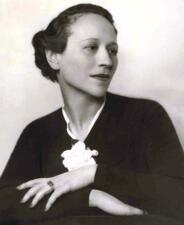
Edith Rosenwald Stern
Marion Stone
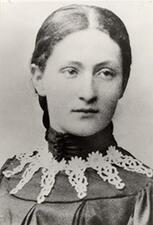
Rahel Straus
Rahel Goitein Straus, a pioneering woman medical doctor trained in Germany, was a model “New Jewish Woman” of the early-20th century. Successfully combining a career as a physician with marriage and motherhood, she committed herself to Jewish and feminist causes and organizations throughout her life, while also embracing Zionist ideals.
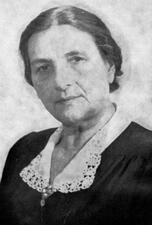
Hasya Sukenik-Feinsod
Hasya Sukenik Feinsod served as director of the Hebrew Kindergarten Teachers College. In 1919 Feinsod was appointed by the Education Committee to serve as superintendent of kindergartens in Jerusalem. She headed the Association of Kindergarten Teachers, and she was the first and only female representative on the Education Committee.
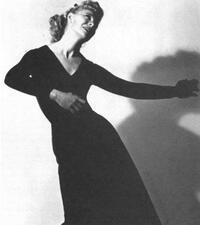
Helen Tamiris
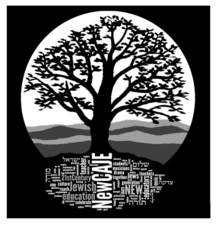
Teaching Profession in the United States
Jewish women in the United States became professional teachers to an extent unprecedently in Jewish history. Through Jewish educational organizations, Jewish schools, and public schools, female Jewish teachers have played an important role in shaping the North American teaching profession.
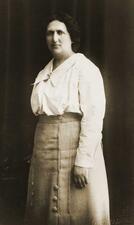
Sarah Thon
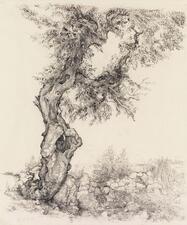
Anna Ticho
From the moment she arrived in the city in 1912 until the day she died in 1980, Anna Ticho lovingly portrayed Jerusalem in paint, pen and ink, charcoal, pastel, and pencil. Her works have been shown around Israel and abroad, and she has received numerous honorary titles and awards. She bequeathed her home, Ticho House, to the Israel Museum to be used as a site for exhibitions and cultural events.
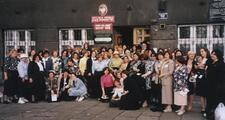
Torah Study
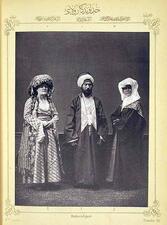
Turkey: Ottoman and Post Ottoman
The Jewish population of Turkey navigated far-reaching changes in the political, social, and geopolitical spheres in the late nineteenth and the early twentieth centuries, as the Ottoman Empire pursued reform and collapsed and the Turkish Republic that took its place imposed a process of “Turkification” on its residents. During this period, Jewish women partook in traditional customs relating to religion, family, and the home, while also accessing new opportunities in the public sphere through education and political engagement.
Rosa Zimmern Van Vort
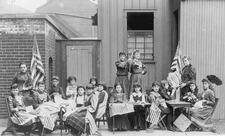
Vocational Training Schools in the United States
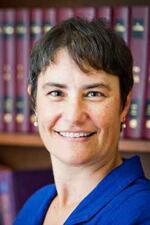
Deborah Waxman
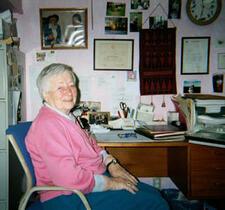
Gertrude Webb
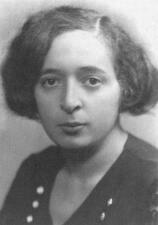
Trude Weiss-Rosmarin
Trude Weiss-Rosmarin made great advances for women’s involvement in Jewish life through the schools she created and her editorship of the Jewish Spectator. A dynamic speaker backed by broad-ranging Jewish scholarship and a prodigious memory, she was a popular lecturer at synagogues and Jewish centers across the United States and a foremost critic of American Jewish life and institutions.
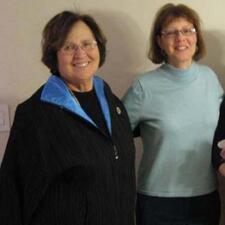
Judy Wolf
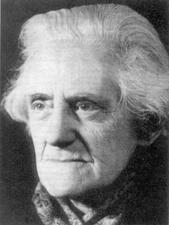
Nelly Wolffheim
Nelly Wolffheim spent her career developing and teaching a kindergarten curriculum based around Sigmund Freud’s psychoanalytic framework. She taught this curriculum, which encouraged children to express their sexual desires, to Jewish women teachers in Berlin. After escaping Germany for England in 1939, Wolffheim struggled to continue her research but began publishing her work again after the war.
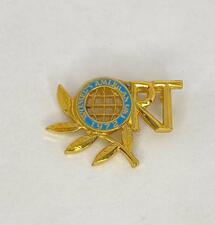
Women's American ORT
Five years after the American chapter of the Organization for Rehabilitation through Training (ORT) was founded in 1922, a women’s auxiliary group (WAO) was created. WAO aided displaced Europeans and focused on creating vocational schools across the world. In the later twentieth century, WAO expanded to help create medical services for students and provide recreational facilities, among other programs.
Working Women's Education in the United States
Although young immigrant Jewish women had always been especially motivated to become educated public-school students, the workers’ education movement in the 1910s and 1920s tried to teach workers specifically about social activism. Organizations such as the International Ladies Garment Workers Union created summer schools at colleges to educate women workers about trade unionism.
